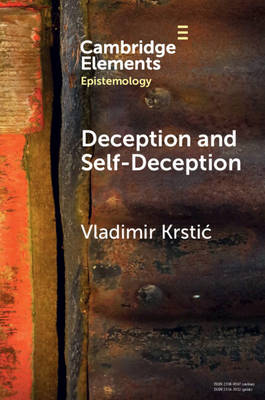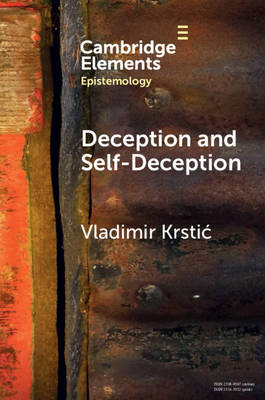
- Afhalen na 1 uur in een winkel met voorraad
- Gratis thuislevering in België vanaf € 30
- Ruim aanbod met 7 miljoen producten
- Afhalen na 1 uur in een winkel met voorraad
- Gratis thuislevering in België vanaf € 30
- Ruim aanbod met 7 miljoen producten
Zoeken
Omschrijving
Received theories of self-deception are problematic. The traditional view, according to which self-deceivers intend to deceive themselves, generates paradoxes: you cannot deceive yourself intentionally because you know your own plans and intentions. Non-traditional views argue that self-deceivers act intentionally but deceive themselves unintentionally or that self-deception is not intentional at all. The non-traditional approaches do not generate paradoxes, but they entail that people can deceive themselves by accident or by mistake, which is controversial. The author argues that a functional analysis of deception solves these problems. On the functional view, a certain thing is deceptive if and only if its function is to mislead; hence, while (self-)deception may but need not be intended, it is never accidental or a mistake. Also, self-deceivers need not benefit from deception and they need not end up with epistemically unjustified beliefs; rather, they must 'not be themselves'. Finally, self-deception need not be adaptive.
Specificaties
Betrokkenen
- Auteur(s):
- Uitgeverij:
Inhoud
- Aantal bladzijden:
- 80
- Taal:
- Engels
- Reeks:
Eigenschappen
- Productcode (EAN):
- 9781009362894
- Verschijningsdatum:
- 4/09/2025
- Uitvoering:
- Paperback
- Formaat:
- Trade paperback (VS)
- Afmetingen:
- 152 mm x 229 mm
- Gewicht:
- 117 g

Alleen bij Standaard Boekhandel
+ 48 punten op je klantenkaart van Standaard Boekhandel
Beoordelingen
We publiceren alleen reviews die voldoen aan de voorwaarden voor reviews. Bekijk onze voorwaarden voor reviews.







